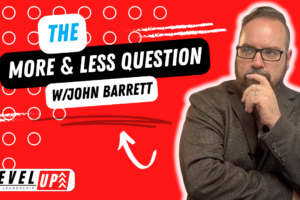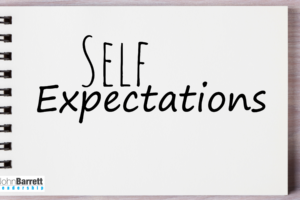Why Feedback Is Essential
Feedback is essential to reach your potential. It provides you with insights into your performance, skills, and areas for improvement. Without honest and meaningful feedback from those around you, it can be nearly impossible to develop as a leader. You cannot truly be your best without a means of receiving helpful feedback.
The problem is that many leaders do not actively seek out feedback. Therefore they are unable to improve to their fullest potential. You cannot improve that which you are unaware of. You can only get better if you truly know what you need to improve.
Here are some common reasons people do not seek feedback.
1. Fear of Criticism
Many leaders are afraid that they will receive negative feedback that will damage their self-esteem or reputation. They believe that admitting to weaknesses or areas for improvement will make them appear less competent in the eyes of those around them. This fear of criticism will hold you back from becoming your best.
2. Lack of Trust
Some leaders may not trust the intentions of those providing feedback. They may believe that the feedback is motivated by personal or political agendas rather than a genuine desire to help them improve. This lack of trust limits them from listening to others.
3. Overconfidence
Some leaders may believe that they are already performing at their best and do not need feedback to improve. They may be overly confident in their abilities and believe that they know what is best for their team and organization. Overconfidence blinds you from the areas you MUST improve in order to be more successful.
4. Time Constraints
Some leaders may feel that they do not have enough time to receive and act on feedback. They may believe that they are too busy with day-to-day tasks and responsibilities to take the time to reflect on their performance and make changes. By failing to make time to get feedback you’ll eventually create even more inefficiencies and ineffectiveness.
5. Lack of Understanding
Some leaders may not fully understand the value of feedback and how it can help them develop their skills and improve their performance. They may not realize that feedback is an essential tool for personal and professional growth. This lack of understanding will keep you from your highest level of success.
It’s important for leaders to recognize the benefits of feedback and work to overcome these obstacles. By actively seeking feedback, leaders can gain valuable insights into their performance, improve their skills, and build stronger relationships with their team members. Whatever the reason for avoiding feedback, it will ultimately limit your future.
Never underestimate the power of simply asking those around you basic questions.
Here are some questions you can ask those around you to get great feedback:
- What do you think are my strengths as a leader, and how have they impacted our team’s success?
- What areas do you think I could improve in as a leader? Is there anything that I am not doing that you think I should be doing?
- How do you think I communicate with the team? Do I provide enough clarity and context, or do I need to improve in this area?
- How do you feel about the feedback that I provide you? Do you think it is helpful, or is there anything that I could do differently to make it more effective?
- What do you think are the biggest challenges facing our team, and how can I better support you and the rest of the team in addressing them?
- How do you think I can improve our team’s culture and work environment?
- Are there any areas where you feel that I am not holding myself or others accountable? How can I do better in this area?
- How can I help you develop your skills and advance your career within the organization?
It’s important for you to approach these conversations with an open mind and a willingness to listen and learn from others’ perspectives. Don’t be defensive, be curious. You should also be prepared to act on some of the feedback you receive and make changes where necessary.
Next Tuesday, I am going to share what I call the Feedback Filter. This lesson will teach you four critical questions to ask yourself when you receive feedback from others.









